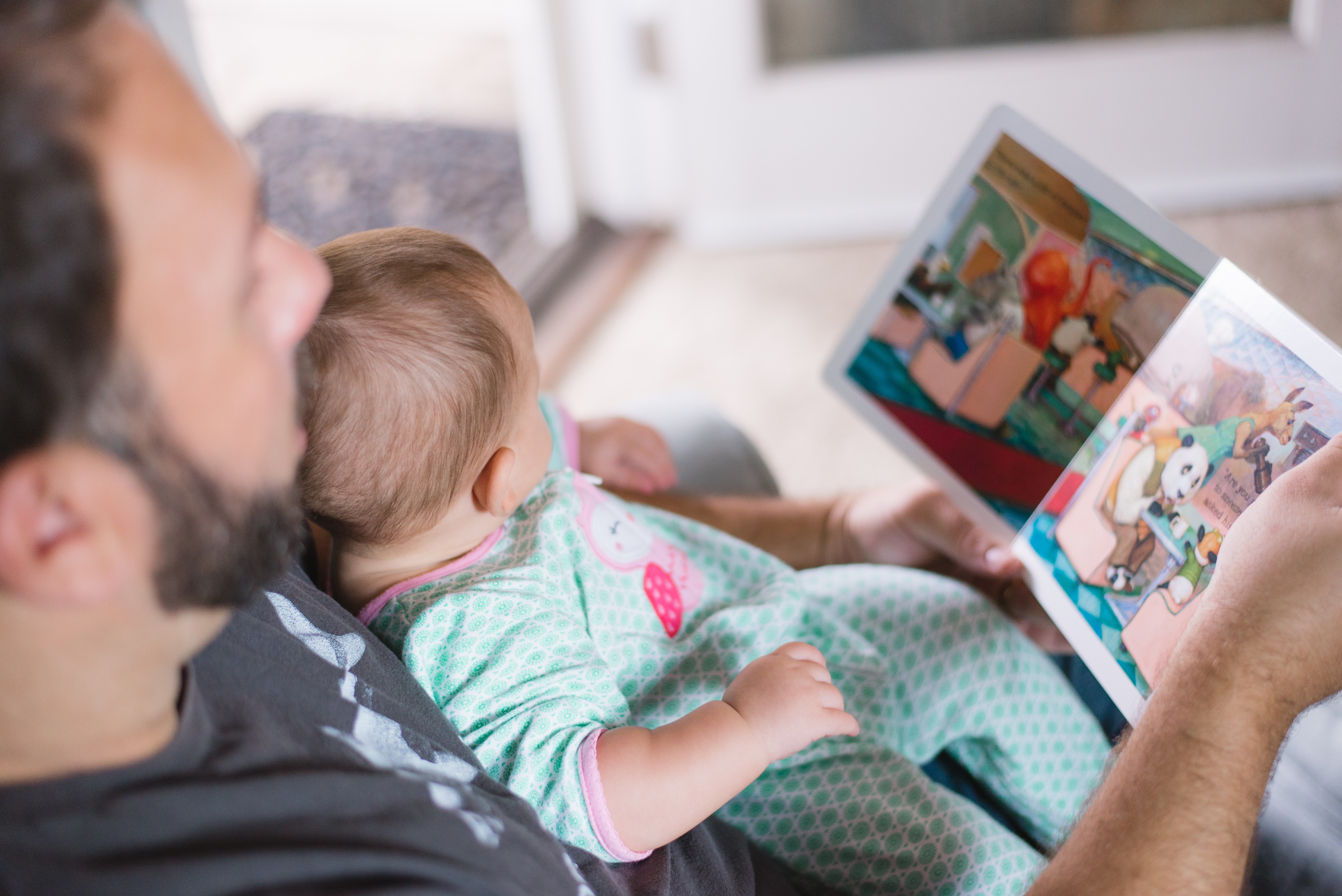SCI, Harvard put early learning tips in your hands
- April 2, 2020
- / Reggie Dogan
- / early-learning

It can be long days in coronavirus lockdown with young children.
Now SCI has a way to bring tips and advice for how to help pass those days right to your phone — with the brain power of Harvard University behind it.
Studer Community Institute is bringing parents of children under 3 a chance to learn from experts at Harvard University’s Achievement Gap Initiative. For the next 60 days, parents of babies, infants and toddlers can sign up for free weekly text messages that suggest fun, at-home learning activities.
The free enrollment period ends on May 24. It’s part of SCI’s effort to bring The Basics to Pensacola and improve early learning outcomes in our community, where only 47 percent of kindergartners were considered school ready based on 2019 data from the state Department of Education.
Use this link on your phone, tablet or computer to sign up. Sign up here bit.ly/33NXTpv
The Basics are five simple and powerful ways for parents to build the foundation for school readiness from the beginning and to give their children a good and healthy start in life. The Basics campaign was inspired by the fact that 85 percent of brain growth occurred during the first three years.
“The Basics is an educational tool we can use to spread the word about how important the first three years are for children,” said Shannon Nickinson, director of early learning for SCI. “And especially now in these trying times with COVID-19 disrupting everyone’s routines, we wanted to bring this text-based learning to parents as quickly as possible.
“Routines are important for young children. It helps them know what to expect and to learn how to respond. We hope this new project in our effort to make Pensacola an Early Learning City helps provide support to parents and families looking to build learning into the time we have together now.”
Dr. Ronald Ferguson, Harvard Kennedy School professor and faculty director of Harvard’s Achievement Gap Initiative, developed The Basics to help reduce the achievement gap and increase brain development in babies.
The Basics includes an online repository of videos, activities, handouts and other materials designed to provide routine interactions with families. The text program — called “Basics Insights” — is the newest tool in that kit.
Parents with children between ages 0 to 3 can sign up to receive two text messages weekly for three years provided by The Basics Network.
The messages use science-based facts and suggested activities to boost a child’s brain development and learning. These weekly tips are designed to help prepare children for school and life.
“We are especially excited about the partnership with Harvard University and the opportunity to reach more parents and their children through this engaging text message system,” said Quint Studer, founder of SCI. “This tool is another innovative way to improve kindergarten readiness and improve the quality of life in our community.”
Basics Insights text messaging adds to the videos, handouts, discussion guides and other resources from The Basics Community Toolkit that community-based organizations use to reach parents and caregivers through activities ranging from workshops to casual conversations.
As the Network expands, the Basics Community Toolkit and other resources and activities provide ongoing opportunities to share lessons to maximize impact of the learning experience.
Moving forward, the text messages will enhance these activities that were going to happen anyway, while also serving as a stand-alone, three-year curriculum to increase the use of Basics-related caregiving.
Almost every adult today has a cellphone. That’s according to a 2019 survey by the Pew Research Center which found that 99 percent of 18- to 49-year-olds own a cellphone of some kind, while 94 percent own a smartphone.
The growth of cellphones combined with texting technology opens up new opportunities to influence adult behavior. More than 95 percent of text messages get read compared to only 25 percent of emails, the Pew study showed.
And the messaging matters. Evidence is growing that prompts and reminders in text messages can improve a variety of health, education and life outcomes, from early learning to kindergarten through 12th-grade education and college attendance.
Basics Insights has the following features:
• A three-year curriculum spanning from birth to age three. Parents and caregivers can enroll at any point.
• Two messages per week. The first message shares a science-based “Fact” related to the child or caregiver’s development. The second message offers a “Try This,” a specific suggestion for the caregiver related to the previous fact.
• Additional tool with other Basics resources. The content for each week is aligned with one of the five Basics principles. The text messaging can be used in combination with other Basics materials, such as videos and handouts from The Basics Community Toolkit.
 CivicCon launches with a look at good growth in cities
CivicCon launches with a look at good growth in cities
 Building stronger brains one baby, one parent at a time
Building stronger brains one baby, one parent at a time
 SCI debuts commercial on Early Learning City
SCI debuts commercial on Early Learning City
 Entrecon: World class speakers and an opportunity to sharpen skills
Entrecon: World class speakers and an opportunity to sharpen skills
 PYP Quality of Life survey 2017
PYP Quality of Life survey 2017
 EntreCon Pensacola 2016: A look back
EntreCon Pensacola 2016: A look back
 Leadership tip: getting better employee takeaways
Leadership tip: getting better employee takeaways
 Leadership tip: be interested instead of interesting
Leadership tip: be interested instead of interesting
 Leadership tip: delivering difficult messages
Leadership tip: delivering difficult messages
 Brain Bags boost Arc, Early Childhood Court programs
Brain Bags boost Arc, Early Childhood Court programs